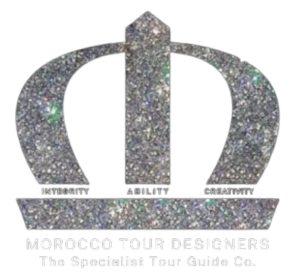In the heart of North Africa lies a country where centuries-old traditions don’t just survive but thrive alongside contemporary innovation. Morocco stands as a testament to how a nation can embrace modernity while preserving its cultural heritage, creating a fascinating blend that captivates visitors and locals alike.
The Evolution of Moroccan Hospitality
Traditional hospitality remains at the core of Moroccan culture, though its expression has evolved with time. The age-old custom of offering mint tea to guests continues, but you’re just as likely to be served in a trendy café in Casablanca’s downtown as in a traditional riad. Modern Moroccans have mastered the art of maintaining their renowned hospitality while adapting to the fast-paced nature of contemporary life.
Fashion: From Djellabas to Designer Wear
The fashion landscape in Morocco tells a compelling story of tradition meeting modernity. While the traditional djellaba remains a common sight, particularly during religious celebrations and formal occasions, today’s Moroccan designers are creating fusion wear that incorporates traditional elements into contemporary styles. In cities like Rabat and Marrakech, you’ll find young professionals wearing business attire during the day and switching to modernized traditional wear for social gatherings.
The Changing Face of the Medina
Morocco’s ancient medinas, once the only commercial centers, now share the stage with modern shopping malls and business districts. However, rather than falling into obsolescence, these historic quarters have reinvented themselves. Traditional artisans now showcase their craft on Instagram, and centuries-old riads have been transformed into boutique hotels that blend authentic architecture with modern amenities.
Culinary Traditions in the Modern Kitchen
Moroccan cuisine remains one of the country’s most preserved traditions, though it too has embraced modern influences:
- Traditional clay tagines now come with modern temperature controls
- Family recipes are being documented and shared through food blogs and YouTube channels
- Historic food markets coexist with modern supermarkets
- Traditional communal dining practices continue, though often adapted for busy urban lifestyles
Technology and Traditional Trade
The ancient art of bargaining in souks hasn’t disappeared – it’s evolved. Many traditional market vendors now accept digital payments, and some artisans sell their handcrafted goods through online platforms. This marriage of traditional commerce and modern technology has helped preserve traditional crafts by connecting artisans with global markets.
Celebrations and Ceremonies
While traditional celebrations like Eid, weddings, and family gatherings maintain their cultural significance, their execution often reflects modern influences:
- Wedding celebrations might feature both traditional Berber music and contemporary pop
- Religious festivals incorporate modern organizational methods while preserving traditional rituals
- Family gatherings might be coordinated through WhatsApp groups, but still center around traditional meals
Language and Communication
Morocco’s linguistic landscape reflects its ability to bridge different worlds. While Classical Arabic and various Berber languages remain important, particularly in traditional and religious contexts, French and English have become increasingly prevalent in business and education. This multilingual environment represents Morocco’s success in maintaining traditional communication while embracing global connectivity.
Art and Architecture
Contemporary Moroccan art often draws inspiration from traditional Islamic geometric patterns and calligraphy while incorporating modern techniques and themes. In architecture, new buildings frequently feature traditional elements like riads (interior gardens) and mashrabiya (decorative windows), but with modern materials and sustainable technologies.
Education: Blending Old and New
Modern Morocco places high value on education while maintaining traditional forms of learning:
- Traditional Quranic schools continue to operate alongside modern educational institutions
- Universities offer programs in both traditional arts and cutting-edge technologies
- Apprenticeship systems in traditional crafts have been formalized and modernized
Urban Planning and Living Spaces
Morocco’s cities showcase the country’s dedication to preserving heritage while developing modern infrastructure:
- Historic medinas are carefully preserved while new eco-friendly neighborhoods develop
- Traditional community structures remain important even in modern apartment complexes
- Public spaces often feature both traditional designs and modern amenities
The Role of Women
Perhaps one of the most significant areas of evolution is the changing role of women in Moroccan society. While traditional family values remain important, women are increasingly prominent in business, politics, and professional fields, creating a new narrative that respects tradition while embracing progress.
Sustainable Traditional Practices
Many traditional Moroccan practices are being recognized for their sustainability:
- Traditional water management systems are being studied for modern application
- Ancient farming techniques are being integrated with modern agricultural practices
- Traditional building methods are being adapted for eco-friendly construction
Looking Forward While Honoring the Past
Modern Morocco stands as a model for how a society can maintain its cultural identity while embracing change. Rather than viewing tradition and modernity as opposing forces, Morocco has created a unique synthesis where both elements strengthen each other. This balance has created a rich, dynamic culture that continues to evolve while remaining distinctly Moroccan.
The success of this cultural evolution lies in Morocco’s ability to select the best of both worlds – maintaining traditions that provide cultural continuity and identity while adopting modern practices that enhance quality of life. This thoughtful approach to modernization ensures that Morocco remains both a guardian of ancient traditions and a forward-looking nation ready to meet the challenges of the future.
